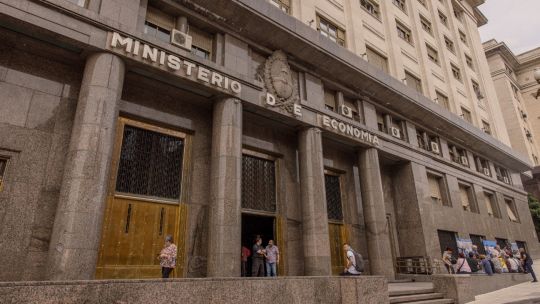
Argentina refinanced almost all of its upcoming local maturities in a debt auction Wednesday, a reprieve for President Javier Milei after his party lost a local election by a landslide Sunday.
Milei’s administration rolled over more than 91 percent of peso-denominated notes coming due, selling a total of 6.6 trillion pesos (US$4.7 billion) in government notes, according to an X post by Finance Secretary Pablo Quirno.
However, the Treasury’s most subscribed Lecap notes included annual interest rates above 59 percent, a sign of how borrowing costs remain elevated as Milei’s government has significantly tightened liquidity in the financial system to contain currency volatility.
Before the auction, yields on local debt had jumped to record highs even ahead of the surprise vote in Buenos Aires Province as investors grew increasingly anxious about the viability of Milei’s free-market programme, forcing the administration to repeatedly raise banks’ reserve requirements to keep its tight grip on the peso.
“Rates were pretty elevated,” said Ramiro Blazquez, a strategist at StoneX. “This implies that the government continues to prioritise low inflation ahead of the election, at the cost of economic activity.”
This week has been a high-stakes period for Argentina and its slumping peso, the worst performer in all of emerging markets in 2025. Losses mounted on Monday after Milei’s party lost the Buenos Aires Province vote by a much wider margin than investors expected, raising investors’ concerns that it could suffer a similar defeat in nationwide midterm elections next month.
Rolling over a large chunk of the maturing bonds, including some dollar-linked securities, helps the government prevent a sudden surge of cash into the economy that would have stoked further declines in the peso and threaten the progress that Milei has made in quelling runaway inflation.
At 1,423.5 pesos per US dollar, the exchange rate is nearing the upper limit of a trading band implemented as part of the South American nation’s US$20-billion agreement with the International Monetary Fund.
To stay within that range, officials have required banks to increase the percentage of deposits they need to park at the Central Bank through the purchase of government debt. That restricts banks’ lending abilities and in turn keeps more pesos out of the system and pushes up borrowing costs.
This time, authorities didn’t announce any previous monetary measures, signalling the government was willing to sell the debt at high rates to ensure demand. Before the auction, the yield for the local notes due in October was at 55.3 percent.
“It is noteworthy that no reserve requirement hike was announced ahead of this week’s auction,” said Pedro Siaba Serrate, head of Research & Strategy of PPI Argentina.
Before the Buenos Aires Province election, Quirno surprised traders by saying the government was participating in the exchange market. That has done little to contain the sell off this week, though Argentina’s stocks and bonds inched higher in the past two days after massive losses on Monday. The peso, meanwhile, has continued to slide.
To address the immediate fallout from the provincial vote, Milei created a special working group, signalling he’s willing to strengthen political alliances, though the next concrete steps remain unclear.
A solid rollover was expected, “particularly now that markets have stabilised and Milei is signalling a willingness to strengthen ties with the governors, raising the odds of a respectable showing in the October national midterms,” said Pedro Quintanilla-Dieck, a strategist at UBS.
by Nicolle Yapur, Bloomberg





